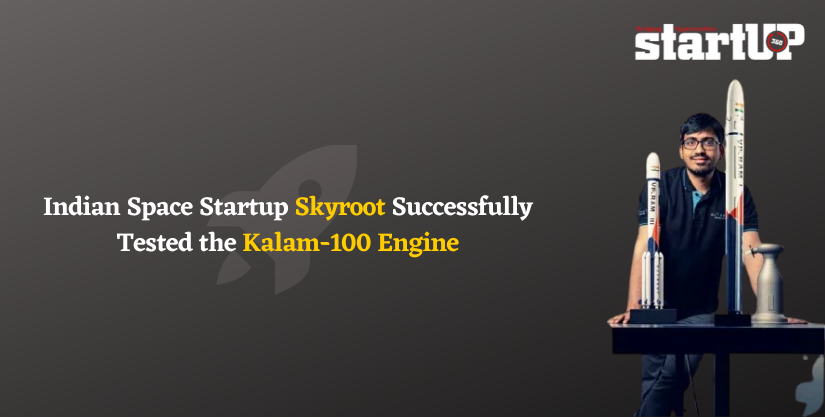Indian Space Startup Skyroot Successfully Tested the Kalam-100 Engine
Skyroot, the first private Indian startup to design, produce, and test a solid rocket propulsion stage, has completed a full-duration test of the rocket’s third stage as part of the development of its Vikram-I launch vehicle.
The Kalam-100 third stage, named after an Indian rocket scientist and former President A.P.J. Abdul Kalam, is merely one component of the company’s first rocket. Vikram-I is a small satellite launch vehicle with three solid fuel stages and a liquid-fueled kick stage. It can carry up to 480 kilos to low-inclination orbits and, according to the company’s website, can be constructed and launched in under 24 hours from any launch location.
Skyroot is now constructing a trio of rockets; the other two, Vikram-II and Vikram-III, will be able to carry greater payloads with repeated orbital insertions, according to Skyroot.
The rocket stage was tested in a private test range in Nagpur City, India, according to CEO Pawan Kumar Chandana. Solar Industries India, a Skyroot investor, and manufacturer of industrial explosives, ammunition, and propulsion systems, owns this range.
Stage 1 and Stage 2 test firings will be the following steps, according to Chandana. The majority of the testing expenditures will be covered by the company’s existing capital, which includes an $11 million Series A and a $4.5 million bridge round. Skyroot is now raising a Series B round to fund “several orbital launches,” according to him.
Skyroot should be able to launch a technological demonstration mission by the end of this year, with its first commercial orbital flight scheduled for early next year, thanks to all of this money. Skyroot will be the first private Indian company to manufacture and launch private rockets, with the launch taking place from India’s spaceport on Sriharikota Island.

